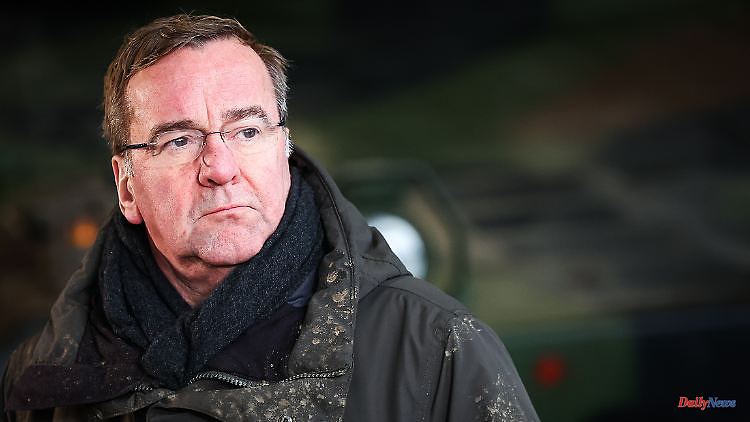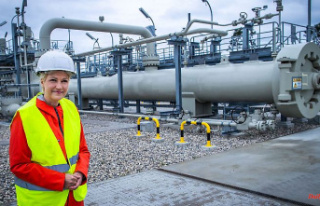Almost a year after the Russian invasion of Ukraine, Federal Defense Minister Pistorius is a guest on the ZDF talk show "Markus Lanz". In the broadcast on Wednesday evening, he explains, among other things, why Germany will not deliver fighter jets to Ukraine.
Federal Defense Minister Boris Pistorius has ruled out deliveries of fighter jets from Germany to Ukraine. The minister also rejects the fulfillment of the Ukrainian demand for phosphorus and cluster bombs. "We are signatories to the relevant convention. In it we said we no longer use cluster bombs, and we no longer use them. And we say that even the strongest do not break the law. And that means we don't use cluster bombs even if Russia does."
Pistorius speaks here of the Oslo Convention, which bans the use, manufacture, transfer and stockpiling of cluster munitions. To date, 123 countries have signed the treaty, which came into force on March 1, 2010. According to various human rights organizations, cluster bombs were also used in the Ukraine war - with devastating consequences. Last August, several hospitals were destroyed by cluster munitions in Kharkiv in north-eastern Ukraine.
In the first six months of the war, Russian forces are said to have used cluster bombs in hundreds of attacks. Significantly fewer such operations are known from the Ukrainian army. Human rights organizations speak of three attacks with cluster bombs. These are containers that contain many small submunitions. They are spread over a wide area. The fatal thing about it: Many of these small bombs do not explode on impact and then remain as dangerous duds.
Fighter jets could become important in the Ukraine war in the near future. "But we can lean back a little because we don't have and don't fly the fighter jets required by Ukraine," says the minister at Lanz. However, he limits: "If nations that have these fighter jets decide to deliver, we have to support it."
Pistorius says he can understand the demand for an end to arms deliveries to Ukraine. "Unfortunately, there's no other choice at the moment if we don't want to abandon Ukraine." There is also a large majority for this. Russia's President Putin is not only waging war against Ukraine, but against the entire free world, "the world of free thought, freedom and democracy. Because that's what he's afraid of."
Pistorius can understand anyone who doesn't want to be drawn into this war. "And the federal government has also said clearly: We don't want to and we won't become a party to the war. You have to say that clearly again and again." Not supplying weapons, and thereby saying that Ukraine must back down, cannot be the solution. Russia must not get away with this war, stresses Pistorius. Ultimately, Ukraine must decide which way to go. "And then we have to decide whether we want to go that route."
One of Boris Pistorius' tasks in the near future will be the restructuring of the Bundeswehr. In the past thirty years, people thought that the Bundeswehr was only needed for crisis interventions abroad. Nobody thought about national defense, and that was understandable, said Pistorius. "Now the decisions made at the time are proving to be expensive because we have to re-equip the Bundeswehr." At the moment, the Bundeswehr can only be defended for a short time, he is not allowed to say more, explains the minister. In the event of an attack, however, defense in Europe is a matter for the NATO alliance anyway.
By 2024, all NATO member states must spend at least two percent of their gross domestic product on defense. Germany will not be able to avoid this either, according to Pistorius. For Germany, that would be 77 billion euros a year - instead of the previous 50 billion. No one expects an immediate increase in defense spending, it will be gradual. "What matters is the path we take to get there," says the defense minister.
For the re-equipment of the Bundeswehr, Pistorius is calling for the defense budget to be increased by 10 billion euros a year. New battle tanks, combat aircraft and, above all, ammunition would have to be purchased, says Pistorius. And he promises that his ministry will ensure that the required material is procured much more quickly.












